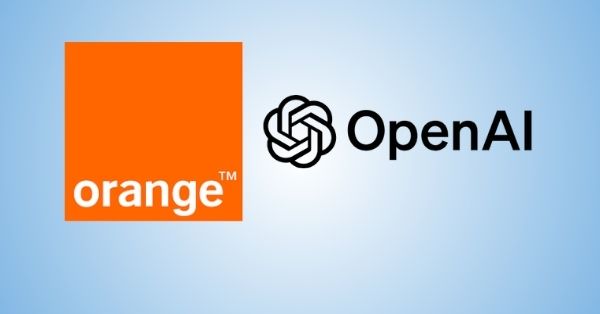Orange has expanded its strategic partnership with OpenAI to improve access to generative AI across Europe, the Middle East, and especially Africa. Through this deal, the French telecom operator becomes one of the first in Europe to gain direct access to OpenAI’s pre-release models—bringing both infrastructure-level integration and regional customization into its growing AI portfolio.
This expansion builds on an agreement first announced in November 2024 and aims to fine-tune large language models (LLMs) to understand underrepresented African languages like Wolof and Pulaar. These models will be hosted within Orange’s own data centers, ensuring full compliance with European data privacy standards and sovereign AI principles.
Targeting Local Language Inclusion in Africa
For Orange, which operates in 26 countries and has a strong footprint across 18 African markets, inclusivity is central to its AI strategy. Language access is often a key barrier in tech adoption. While major LLMs like ChatGPT function fluently in English or French, these are not the first languages for most rural populations in Africa.
By localizing LLMs to understand and respond in widely spoken regional dialects such as Wolof and Pulaar, Orange aims to bridge that gap. These languages are used daily by more than 20 million people across Senegal and surrounding West African countries—often more frequently than colonial languages like French.
This localization can bring real value to everyday life. A farmer in rural Senegal asking for crop advice in Wolof, or an entrepreneur accessing financial analysis via AI in their native language, stands to benefit immensely from such advancements.
Deploying OpenAI Models on Local Infrastructure
With the expanded partnership, Orange will deploy OpenAI’s newest open-weight reasoning models, gpt-oss-120b and gpt-oss-20b, across its own infrastructure. These models will not run in public cloud environments but instead be hosted in Orange’s trusted and regulated data centers.
This approach allows Orange to maintain data sovereignty and comply with regulatory frameworks in both Europe and Africa. It also means Orange can deliver AI-powered services at the Edge, within enterprise environments, or on-premises—offering maximum flexibility.
Steve Jarrett, Orange’s Chief AI Officer, emphasized that the company’s Responsible AI strategy ensures that AI deployment remains secure, energy-efficient, and tailored to actual user needs.
“These open models let us develop powerful enterprise solutions and customize experiences for African customers, all while operating under strict data control,” said Jarrett.
Fine-Tuning AI Models for African Use Cases
Orange is also working with Meta to fine-tune their respective open-source models—Whisper and LLaMA—to understand and generate responses in African languages. This effort includes curating and sharing data samples in Wolof and Pulaar to train the AI systems more effectively.
Importantly, these fine-tuned models will be released under a non-commercial open-source license, making them freely accessible for local governments, non-profits, and educational institutions. Potential use cases include:
-
Health communication in native languages
-
Local language support in educational platforms
-
AI-driven services for municipalities and NGOs
This step is aligned with Orange’s goal to make AI tools more inclusive and contextually useful for African markets.
Addressing the Digital Gender Divide
Orange’s initiative is particularly significant in addressing gender-based digital inequality. Literacy levels among women in sub-Saharan Africa are substantially lower than those of men. In Senegal, for instance, only 45.4% of women are literate compared to 68.4% of men, according to UNESCO.
Since AI interfaces like ChatGPT typically require users to read and write in global languages like English or French, this creates a clear access barrier. By enabling interaction in local spoken languages, Orange’s project supports better access for women and rural populations who may not be literate in colonial languages.
A Broader Ecosystem of African LLM Innovation
While Orange is leading the charge among telecom giants, other companies are also investing in LLM localization. Startups like Lingawa—a platform helping diaspora communities learn native African languages—have begun building their own African-focused large language models. Recently, Lingawa raised $1.1 million from investors including Voltron Capital, WEAV Capital, and the MasterCard Foundation.
CEO Frank Williams said the company began with Yoruba and Igbo, and aims to expand support to more languages. Their work complements Orange’s broader ambition to eventually support all African languages spoken across its 18-country Telecom footprint.
Integrating Multiple AI Providers for Flexibility
Orange isn’t limiting its AI ambitions to OpenAI alone. Earlier in 2025, the operator also announced a partnership with French AI startup Mistral to co-develop AI systems optimized for telecom operations. This collaboration explores how LLMs affect network performance and supports Orange’s future AI infrastructure planning.
In addition, Orange’s internal AI platform “Dinootoo” gives over 50,000 employees access to generative AI tools from OpenAI, Google’s Gemini, Meta’s LLaMA, Mistral, and Anthropic’s Claude. These tools are used for document analysis, customer service chat, code generation, and meeting summarization—all hosted securely.
Expanding AI Use Cases Beyond Language
The OpenAI partnership also brings wider benefits beyond localization. Orange is deploying open-weight LLMs to optimize:
-
Network performance and Automation
-
Intelligent customer service workflows
-
Enterprise data analysis
-
Real-time insights for B2B offerings, such as Orange Business Live Intelligence
These deployments allow Orange to remain competitive in delivering AI-powered solutions while maintaining Security and data control.
Looking Ahead: Local Clouds, Local Voices
One of the most transformative aspects of Orange’s plan is its commitment to local AI hosting. In many African countries where Orange operates, public cloud infrastructure may still be years away. By building and deploying AI tools in its own data centers, Orange ensures that AI access doesn’t depend on global infrastructure availability.
“Our open models will help drive digital inclusion in African countries where public clouds won’t exist for years,” Jarrett noted.
Orange’s Responsible AI strategy takes a grounded, practical approach: customize where needed, deploy only what is useful, and always prioritize local relevance. By focusing on African language inclusion and deploying sovereign AI infrastructure, Orange is setting a new benchmark for how telecom providers can support equitable AI adoption across diverse regions.




























